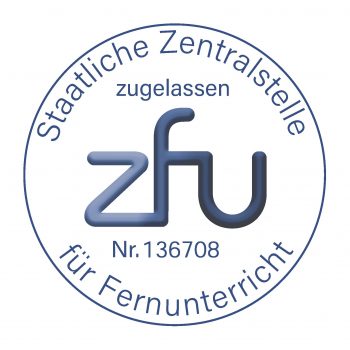Internationale Handelstheorie
Who is the university certificate suitable for?
Would you like to gain a sound understanding of the economic principles and mechanisms of international trade? Do you come into professional contact with global markets, international business developments or economic policy issues? Then this certificate is just right for you to supplement your valuable knowledge and practical skills in international trade theory.
The most important things at a glance:
- Duration of study: 6 months + 6 months free extension
- ECTS credit points: 10 ECTS credit points
- Exam form: Submission task
- Admission requirements: none
- Start of studies: at any time
- Credit transferability: M.A. Business Education (if you have a completed first degree).
- Tuition fees: EUR 165 per month, EUR 990 in total
Fit for world trade - your certificate in international trade theory
The globalized economy places increasingly complex demands on specialists and managers. With the University Certificate in International Trade Theory, you will acquire in-depth knowledge of the economic foundations of world trade, which you can use confidently in international decision-making processes.
You will not only learn about the central models of international trade theory, but also deal with the practical effects of global economic interdependence, from free trade and protectionism to exchange rate mechanisms and trade agreements. This knowledge will make you a sought-after expert in companies, international organizations and economic policy consulting.
Understanding and applying international trade models
In the first part of the certificate, you will receive a sound introduction to international trade theory and learn how the global exchange of goods and services is represented empirically. You will then deepen your understanding through classical theories of foreign trade: from absolute and comparative cost advantages according to Smith and Ricardo to the Heckscher-Ohlin model, which attributes international trade to different resource endowments.
In addition, you will deal with more recent approaches that explain free trade failures, for example through economies of scale, monopoly structures or product differentiation. This content creates the basis for a differentiated understanding of strategic trade policy as it applies to subsidy conflicts or international location decisions.
Critically reflect on exchange rates, trade law and globalization
Another focus is on the theory and practice of foreign exchange markets. You will analyze the development of different exchange rate systems, consider their significance for international trade relations and examine Europe's path to a common currency in a case study.
You will also deal with the topic of protectionism. You will examine empirical findings, economic causes and concrete techniques of protectionist policies, a highly topical issue in the context of global trade conflicts. You will also expand your knowledge by taking a critical look at globalization and the legal foundations of international trade as part of an excursus on trade law.

